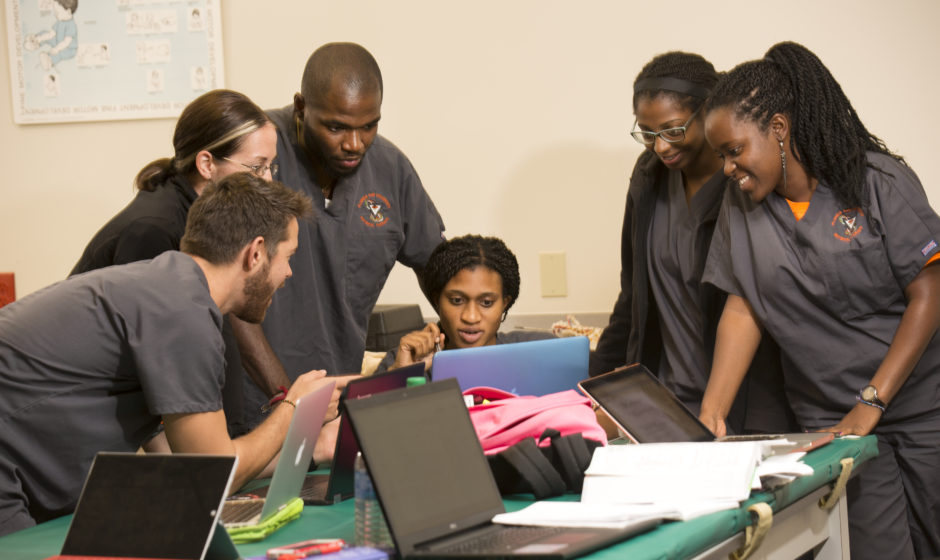16 Aug Grants and Capital Campaigns
Grant proposals are an important part of the quiet phase of capital campaigns, but if you aren’t experienced in writing for a capital campaign, there are a lot of questions you may want to ask an experienced grant professional: How do you decide which...
11 Aug Grants 201: Creating Effective Budget Narratives
Grants 201: Creating an Effective Budget Narrative Session 6 of the Grants 201 Series A budget is a key element of most grant proposals and serves as a blueprint for spending the project’s funds. An effective proposal budget outlines the proposed project in fiscal terms and helps reviewers...
02 Aug Grants 201: Logic Models for Program Planning
Grants 201: Logic Models for Program Planning Session 5 of the Grants 201 Series You don’t have to love them, but you do have to respect them because logic models are a dynamic tool for program planning, evaluation planning, monitoring, and coalition building. Many funders require them, and...
01 Aug Grants 201: The Power of Partnerships
Grants 201: The Power of Partnerships Session 4 of the Grants 201 Series Working together with other nonprofits to achieve greater impact (e.g. shared services, mergers, joint programming, etc.) Partnerships and collaboration are strategic alliances between nonprofits that are intended to achieve greater impact than any organization could...
29 Jul Funding Alert! Training Opportunities for Health Care Workforce Development!
Health Resources and Services Administration Attention institutions of higher education, community-based healthcare organizations, and school districts! The Health Resources and Services Administration (HRSA) has various upcoming opportunities for healthcare professional training programs. This announcement features healthcare opportunities specifically focused on training networks for underserved and diverse communities. Upcoming posts through the end of July will feature opportunities for training related to nursing, residency, secondary education outreach, and substance abuse. About the agency HRSA programs provide equitable health care to people who are geographically isolated and economically or medically vulnerable. This includes programs that deliver health services to people with HIV, pregnant people, mothers and their families, those with low incomes, residents of rural areas, American Indians and Alaska Natives, and those otherwise unable to access high-quality health care. HRSA programs also support health infrastructure, including training health professionals and distributing them to areas where they are needed most, providing financial support to health care providers, and advancing telehealth. In addition, HRSA oversees programs for providing discounts on prescription drugs to safety net providers, facilitating organ, bone marrow, and cord blood transplantation, compensating individuals injured by vaccination, and maintaining data on health care malpractice payments.27 Jul Grants 201: Needs Assessments & Strategic Plans
Grants 201: Needs Assessment & Strategic Plans Session 3 of the Grants 201 Series Needs assessments conducted broadly in the community and specifically by an organization are valuable tools for all individuals who write grants. They help the writer use facts to describe the challenges experienced by...
22 Jul Funding Alert! Training Opportunities for Residency
Health Resources and Services Administration Attention institutions of higher education, community-based healthcare organizations, elected officials, and school districts! The Health Resources and Services Administration (HRSA) has various upcoming opportunities for healthcare professional training programs. This announcement features three forecasted opportunities specifically focused on nursing for rural and underserved communities. Upcoming posts through the end of July will feature opportunities for training related to nursing, residency, secondary education outreach, and substance abuse.17 Jul Grants 201: Prospect Research
Grants 201: Prospect Research Session 1 of the Grants 201 Series Identifying grant-funding sources is just the first step in the research process. This session will teach you how to qualify your research and create a grant calendar that focuses on your best prospects. This session will...
01 Jul Funding Alert! Training Opportunities for Nursing
Health Resources and Services Administration Attention institutions of higher education, community-based healthcare organizations, elected officials, and school districts! The Health Resources and Services Administration (HRSA) has various upcoming opportunities for healthcare professional training programs. While the specific goals of these programs differ, the overarching goal is to provide equitable health care to people who are geographically isolated and economically or medically vulnerable. This announcement features three forecasted opportunities specifically focused on nursing for rural and underserved communities. Upcoming posts throughout July will feature opportunities for training related to nursing, residency, secondary education outreach, and substance abuse. About the agency HRSA programs provide equitable health care to people who are geographically isolated and economically or medically vulnerable. This includes programs that deliver health services to people with HIV, pregnant people, mothers and their families, those with low incomes, residents of rural areas, American Indians and Alaska Natives, and those otherwise unable to access high-quality health care. HRSA programs also support health infrastructure, including through training of health professionals and distributing them to areas where they are needed most, providing financial support to health care providers, and advancing telehealth. In addition, HRSA oversees programs for providing discounts on prescription drugs to safety net providers, facilitating organ, bone marrow, and cord blood transplantation, compensating individuals injured by vaccination, and maintaining data on health care malpractice payments. As part of a series, funding Friday will highlight HRSA opportunities focused on training for the healthcare workforce, both available and forecasted. This week starts with training opportunities for nursing, managed by the Division of Nursing and Public Health, featuring the following forecasted opportunities currently projected with January 2023 deadlines:- Nurse Faculty Loan Program (NFLP), focuses on increasing the number of qualified nursing faculty nationwide by funding accredited schools of nursing to establish and operate a student loan fund for students enrolled in advanced education nursing degree programs and who are committed to become nurse faculty.
- Advanced Nursing Education Workforce (ANEW), supports academic clinical partnerships that educate and graduate primary care Nurse Practitioners, clinical nurse specialists, and nurse midwives who are academically and clinically prepared for transition to practice in rural and underserved communities. The goal of the program is to increase access to needed primary medical care for these populations.
- Nurse Anesthetist Traineeships (NAT), aims to increase the number of new Certified Registered Nurse Anesthetists nationwide and to prepare them to provide care and practice in rural and underserved communities.










